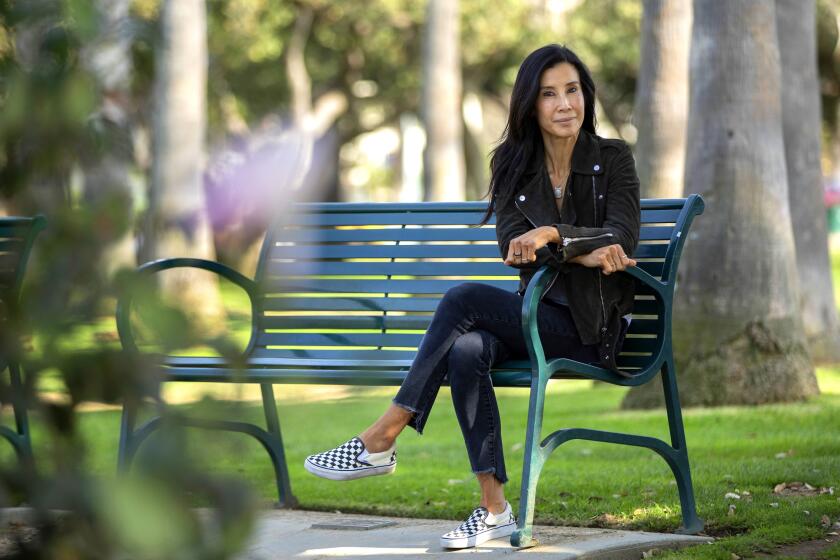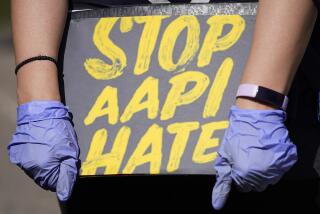A year after Atlanta spa shootings, ABC’s Juju Chang keeps the heat on violence against AAPI community
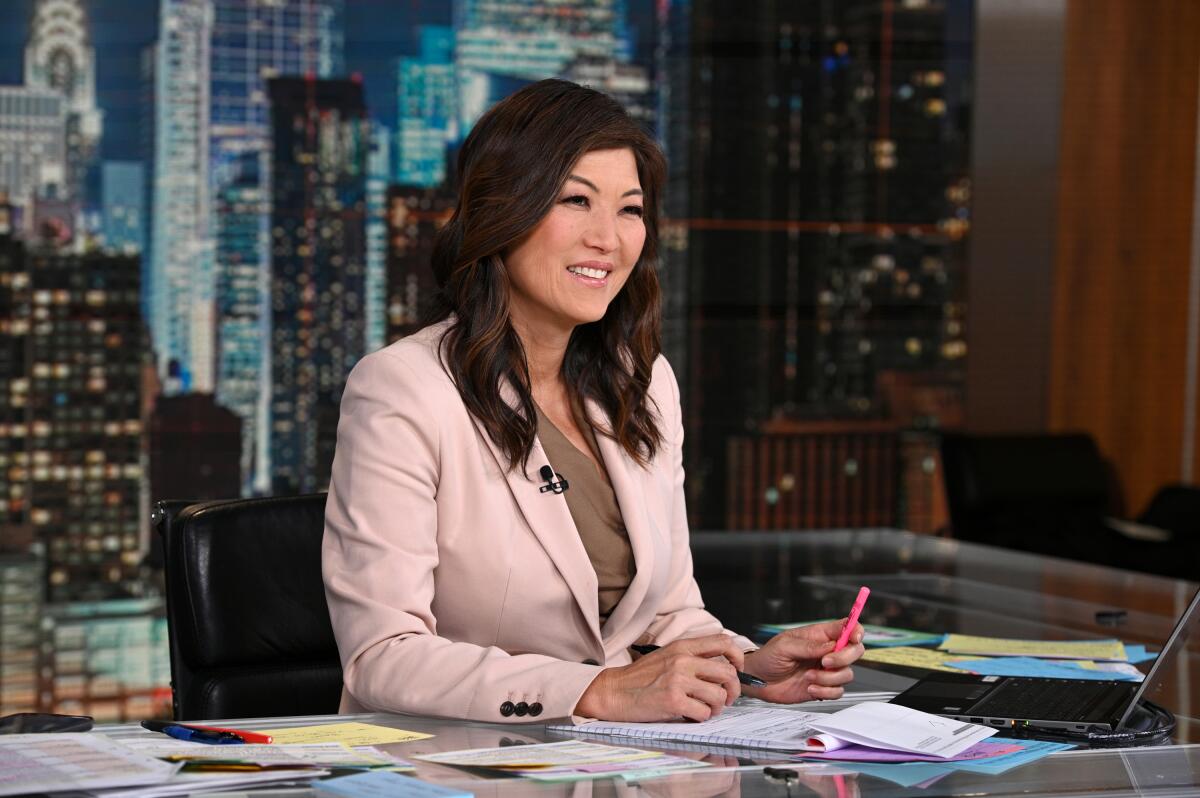
- Share via
In the rapid news cycle of 2021, the shooting deaths of eight people including six Asian American women at three Atlanta-area spas on March 16 of that year stood a strong chance of being forgotten.
But ABC News anchors Juju Chang and Eva Pilgrim — both of whom were born in Korea — made sure that didn’t happen when it was discussed at a network meeting the following day. “We made our case that this should not go ignored,” Chang recalled in a recent interview.
The result of their efforts was “Murder in Atlanta,” on a special edition of “20/20” — the only network program to devote a full prime time hour to the story.
Nearly a year has passed since the rampage, which put a laser-like focus on the massive surge in hate crimes and violence against Asian Americans during the pandemic. Chang remains dogged in keeping a spotlight on the issue, as she recently returned to Atlanta to report for “Nightline” on the long-term impact the killings had on the families of the victims and the movement to stop violence against Asian Americans and Pacific Islanders (AAPI).
The episode will be available for streaming on Hulu after it airs Wednesday on ABC at 12:35 a.m. A second special with Chang’s reporting—“Stop the Hate: A Call for Unity” — will run on the streaming service ABC News Live at 5:30 p.m. and 9:30 p.m. Pacific.
The actions of the Georgia shooter, Robert Aaron Long, raised a myriad of issues facing the Asian American community. A Cherokee County Sheriff’s Department spokesman repeated Long’s statement that the shootings were motivated by a sex addiction he fed by visiting the spas — employing the stereotype of hyper-sexualized Asian women.
The spokesman was then removed from his duties when his Facebook account showed a post promoting T-shirts with racist language about China and the coronavirus. Such language is often parroted by perpetuators of AAPI attacks.
Long pleaded guilty to four murders in Cherokee County and received a life sentence but has pleaded not guilty to charges for four killings in Fulton County, where the prosecution is pursuing the death penalty.
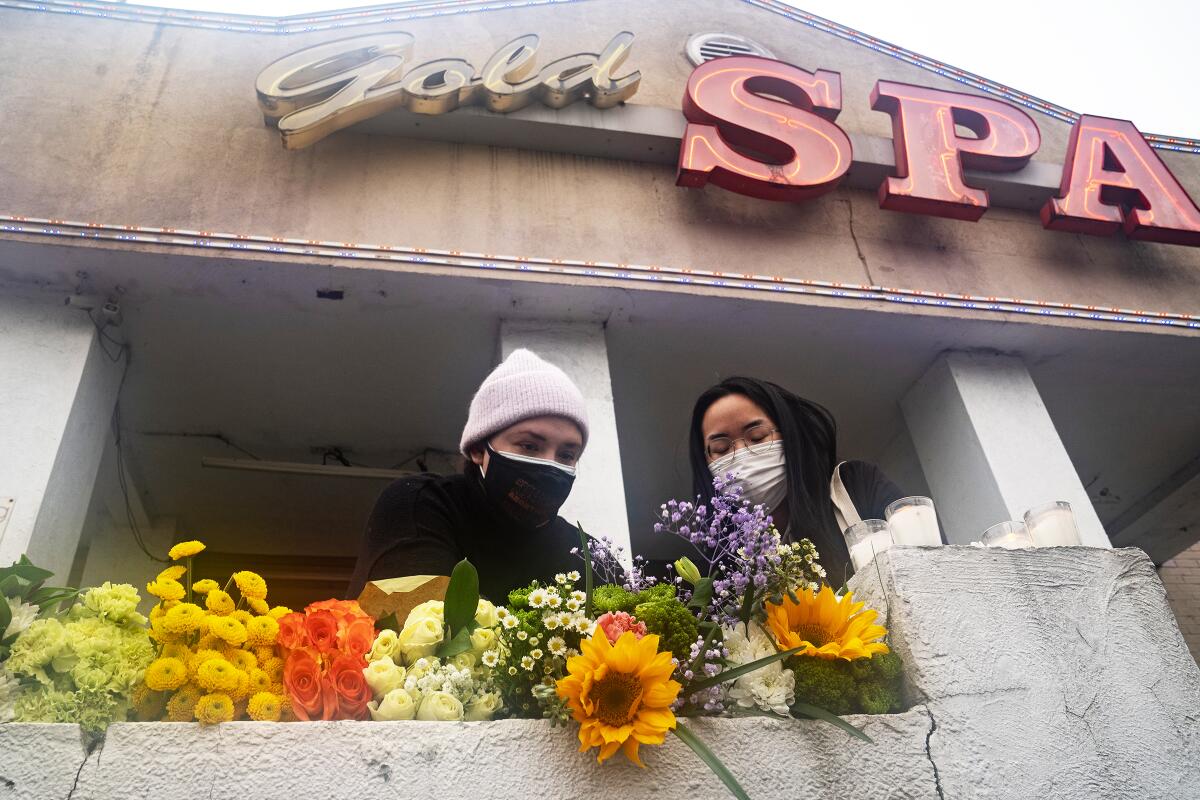
Chang was raised in Sunnyvale, Calif., and is a 31-year veteran of ABC News. She has been co-anchor of “Nightline” since 2014. She talked about the personal impact the story is having on her and her family—and being a part of an increasingly diverse news operation willing to cover it.
So much has happened in the last year to overshadow this story. Is that why it was important to revisit it?
The news cycle flashed off of it in 72 hours. Journalistically, it was a big shocking event in the way that the victims were targeted and the motivation behind it. As an Asian American it was important to revisit it because I think it was a galvanizing moment in the AAPI community. I just interviewed a woman — an activist — yesterday, who said when that spa shooting happened, everyone stood up and said, “We’re not going to take it anymore.” It really was a high water mark in the maturation of activism in the community.
What impact has the rise in AAPI hate crimes had on you? Have you had to sit down and talk to your three sons about this?
Oh, absolutely. They’re half-white and half-Asian — as we like to say, half-Korean and 100% Jewish. [Chang is married to New York public TV executive Neal Shapiro]. They’re very proud of both identities. I’ll leave aside for a moment that antisemitism is on the rise as well. But for them I’ve had to be very frank — just be situationally aware. Because in a lot of these attacks there’s an intersectionality with poverty, people experiencing homelessness with mental-health issues. Those intersections are things that my kids encounter routinely in New York City. And so I’ve had to say to them, “I want you to be loud and proud about being Asian American, but if you encounter somebody who seems off that’s not the time to be declaring your identity.”
COVID-19 forced Ling to pivot from immersion journalism to deep history dives, including her CNN series connecting hate against Asian Americans and more to today’s tensions.
Have you been affected personally?
It was summer 2020 and I’m driving down the street in New York. I had my window open because it was summertime. I can’t even remember if he cut me off or I cut him off. It was a road rage situation. And the guy rolls down his window and screams whatever Asian slur. I’ve encountered elements of that throughout my life, but it was heightened. It was aggressive. Everybody has anger management problems these days because of the pandemic. But it felt very racialized. Did I report it? No, which just suggests that I can’t imagine how much verbal harassment, online harassment, workplace harassment that people have been subjected to in the AAPI community that, like me, would never report it.
These violent attacks are bringing up issues for Asian Americans regarding incidents or indignities that happened to them and their family members.
I talk about growing up watching my dad be treated shabbily because of the way he talked, or because of the way he looked. I didn’t have words for it at the time, but I could tell that he was treated badly... I was born in Korea. We moved here when I was 4. When I was growing up though in Silicon Valley there wasn’t a 25% Asian workforce like it is now. And I felt different. I felt other. I also think taking one look at me you wouldn’t know that I wasn’t born here. But I would very often throughout my life experience the whole perpetual foreigner thing. What bums out Asian people all the time is when they’re asked, “Where are you from?” And the answer is, like, “Oh, I’m from California.” And they say, “No, no, no, where are you really from?” The subtext of that is, “You’re not from here; you’re a foreigner.”
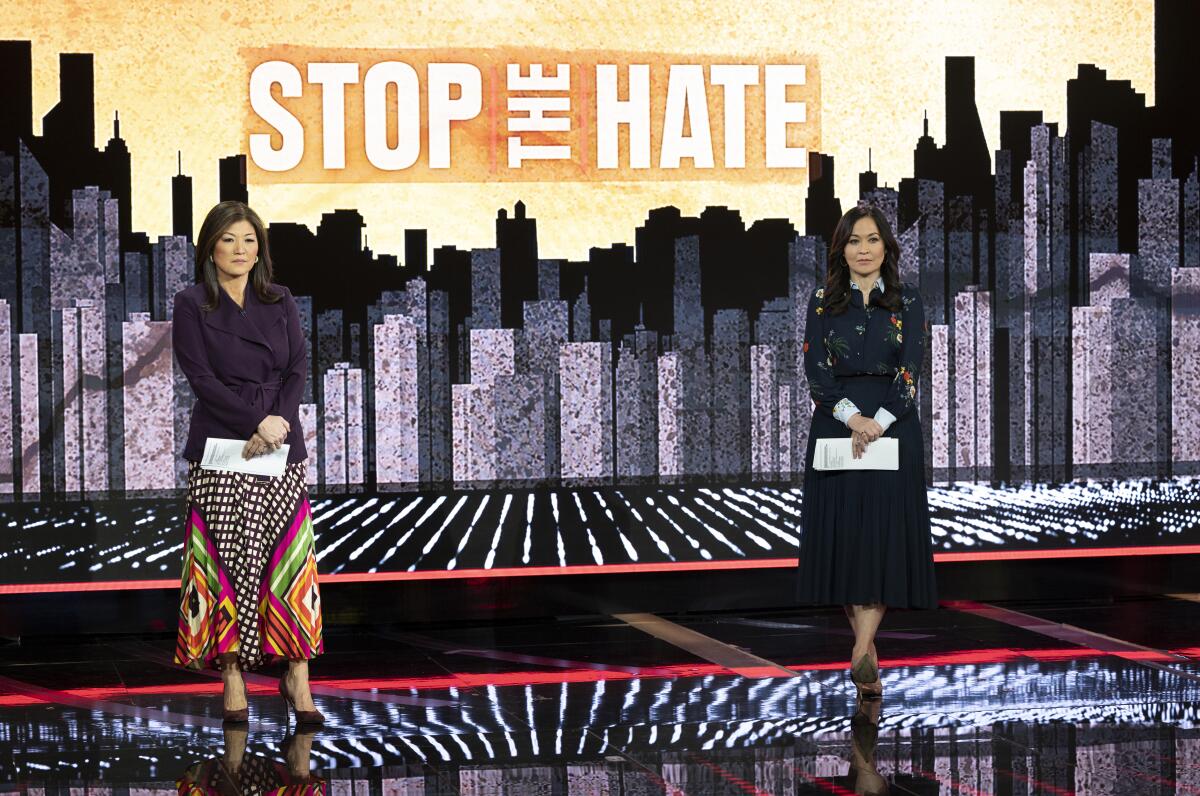
How are you feeling about Asian American representation in the newsrooms right now? One reason why these stories don’t get covered as adequately as they should is because organizations often don’t have enough people inside who have the sensitivity to them.
We were the only network to do a prime time hour on this story and part of that was because Eva Pilgrim and I were able to one-two punch it, and ABC’s ranks are widening — we have multiple Asian Americans as on-air people. [ABC News President] Kim Godwin has gone out of her way to try to elevate Asian Americans in senior management behind the scenes. Can we do better? Sure.
So you’re seeing it improve.
I totally have. I mean, [with] Eva, I’m not the only one in the room. And I am heartened by that.
More to Read
Inside the business of entertainment
The Wide Shot brings you news, analysis and insights on everything from streaming wars to production — and what it all means for the future.
You may occasionally receive promotional content from the Los Angeles Times.
